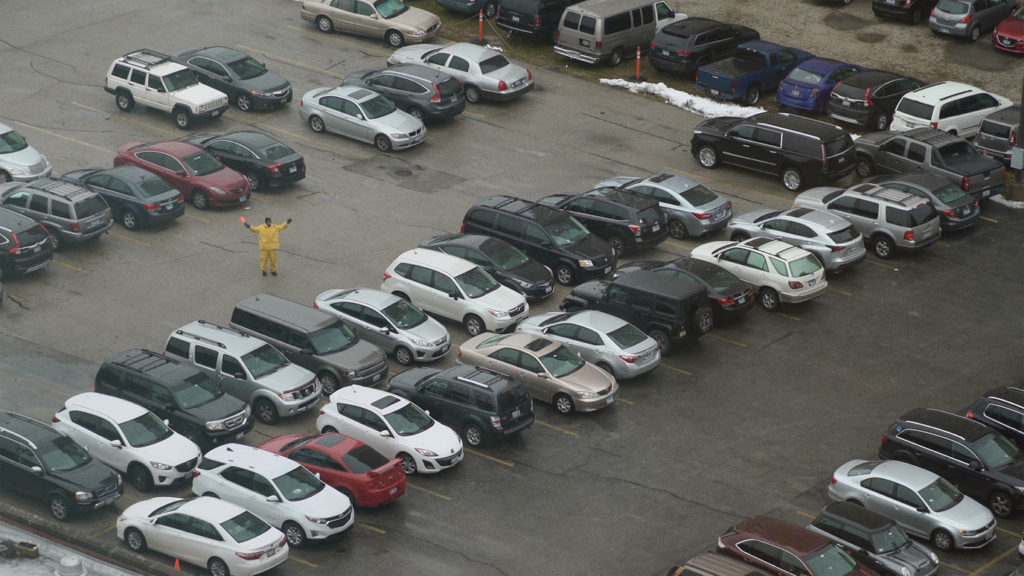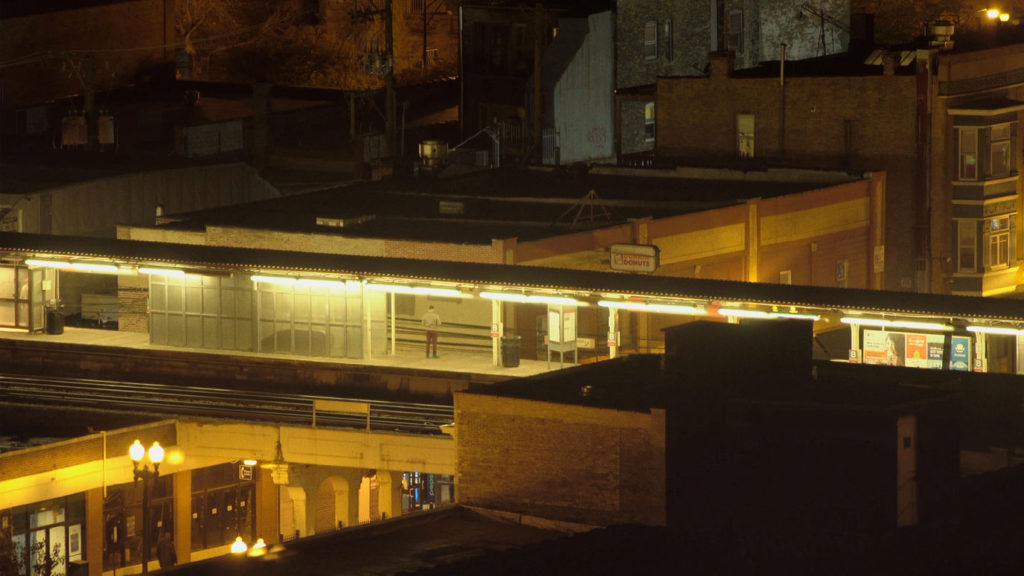IFFR review: Footnote (2022)

In the context of the United States, Covid-19 pandemic has a close runner-up as the event that marked the year 2020 – the murder of George Floyd. His death has not just started a chain reaction of protests and clashes on the streets between the protesters and the police, but it has also spawned a number of debates about the nature of policing and the (excessive) use of force by the police. The legitimate question is whether the people would be better off without any kind of police whatsoever than with the current, violent, trigger- and taser-happy, often brutally violent one.
For the purpose of the documentary Footnote, it seems that Yang Zhengfan has picked up a neutral position in order to understand the very nature of the police work and to contribute to the debate with his findings. It has just premiered at the Harbour section of the International Film Festival Rotterdam, and, having Yang’s filmmaking and producing biography in mind (most recently, he produced Zhu Shengze’s 2021 title A River Runs, Turns, Erases, Replaces), it will see some more festivals, most likely those specialized in documentaries.
Yang’s approach is fairly simple. Like many other filmmakers and especially documentarians who got locked down in March of 2020, he started filming his immediate surroundings, in this case the residential high-rise neighbourhood of Chicago. It all looks pretty plain and expected: the window-washers are washing the windows, the cleaners are collecting the garbage, the parking attendant is directing the drivers, the shoppers are shopping, the joggers are jogging and the passers-by are passing by. And, of course, the seasons are changing…
Actually, it is less about what we see, because the whole film is consisting of shots from the fixed, elevated position, either wide-angle or telephoto, observing different locations of the city, like roads, parks, lake shore, beach and others where people might gather, and more about what we hear: the police or 911 emergency services radio. The cases that are reported vary from the potentially excessive ones, like domestic disturbances and enforcing law and order at some minor protests to those that are more in line with “serve” than with “protect” from the well-known motto. Some people do not feel well, some have lost their pets, somebody needs a speaker of certain language in order to communicate…
At first, there is a stark discrepancy between the audio- and the visual material that could even be called a striking contrast. It is irrelevant if there is a continuity in the sense of time of the events heard and seen, because most of it plays either as mundane or as absurd. Later on, the material coming from two different sources is more aligned with one another, so there is a noticeable connection between what we see and what we hear. Although Yang avoids pointing out to the conclusion even in a footnote he also hesitates to leave, later on, when it all falls into the place, the conclusion to be drawn is that the police usually does the invisible, yet needed work no one else would do otherwise, making Footnote a legitimate testimony of very particular times and a worthy addition to the debate table.

Runtime: 91’
Country: USA
Language: English
Directed by: Yang Zhengfan
Cinematography by: Yang Zhengfan
Editing by: Yang Zhengfan
Sound design by: Yang Zhengfan
Sound recording by: Yang Zhengfan, Zhu Shengze
Colourist: Vivian Bao
Produced by: Yang Zhengfan, Zhu Shengze
Production company: Burn the Film
















